Filter by
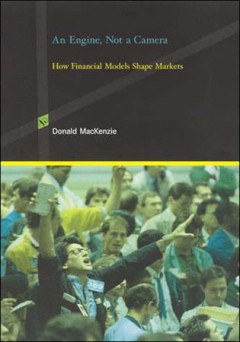
An Engine, Not a Camera: How Financial Models Shape Markets
This pioneering work in the social studies of finance describes how the emergence of modern finance theory has affected financial markets in fundamental ways. Paraphrasing Milton Friedman, the author says that economic models are an engine of inquiry rather than a camera to reproduce empirical facts.OCLC-licensed vendor bibliographic record.
- Edition
- -
- ISBN/ISSN
- 9780262278805
- Collation
- 1 online resource (x, 377 pages) :illustrations.
- Series Title
- -
- Call Number
- -
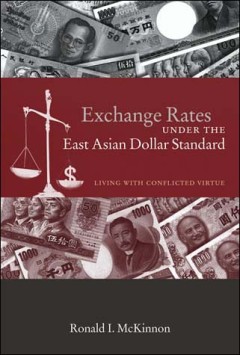
Exchange Rates under the East Asian Dollar Standard: Living with Conflicted V…
Essays by prominent scholars and policymakers honor one of the most influential macroeconomists of the last thirty years discussing the themes behind his work.OCLC-licensed vendor bibliographic record.
- Edition
- -
- ISBN/ISSN
- 9780262279550
- Collation
- 1 online resource (xix, 491 pages) :illustrations
- Series Title
- -
- Call Number
- -
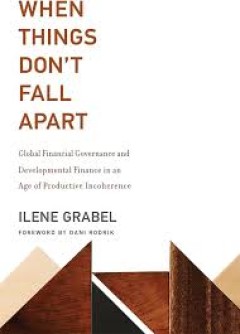
When things don't fall apart :global financial governance and developmental f…
An account of the significant though gradual, uneven, disconnected, ad hoc, and pragmatic innovations in global financial governance and developmental finance induced by the global financial crisis. In When Things Don't Fall Apart, Ilene Grabel challenges the dominant view that the global financial crisis had little effect on global financial governance and developmental finance. Most observers…
- Edition
- -
- ISBN/ISSN
- 9780262344043
- Collation
- 1 online resource (xxi, 372 pages)
- Series Title
- -
- Call Number
- -

https://doi.org/10.7551/mitpress/3001.001.0001?locatt=mode:legacy;http://www.…
This is the first broad cross-country assessment of the ties between financial structure--the mix of financial instruments, institutions, and markets in a given economy--and economic growth since Raymond Goldsmith's 1969 landmark study. Most studies focus on developed countries and compare bank-based and market-based systems. Debates over the relative merits of the two systems have relied on ca…
- Edition
- -
- ISBN/ISSN
- 9780262271455
- Collation
- 1 online resource (vi, 436 pages) :illustrations
- Series Title
- -
- Call Number
- -
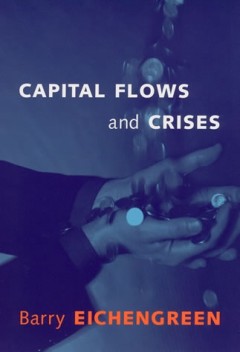
Capital Flows and Crises
The implications of capital mobility for growth and stability are some of the most contentious and least understood contemporary issues in economics. In this book, Barry Eichengreen discusses historical, theoretical, empirical, and policy aspects of the effects, both positive and negative, of capital flows. He focuses on the connections between capital flows and crises as well as on those betwe…
- Edition
- -
- ISBN/ISSN
- 9780262272186
- Collation
- 1 online resource (viii, 377 pages) :illustrations
- Series Title
- -
- Call Number
- -
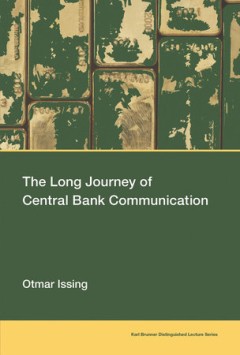
The long journey of central bank communication
Central bank communication has evolved from secretiveness to transparency and accountability—from a reluctance to give out any information at all to the belief in communication as a panacea for effective policy. In this book, Otmar Issing, himself a former central banker, discusses the journey toward transparency in central bank communication. Issing traces the development of transparency, ex…
- Edition
- -
- ISBN/ISSN
- 9780262355995
- Collation
- 1 online resource (104 pages).
- Series Title
- -
- Call Number
- -
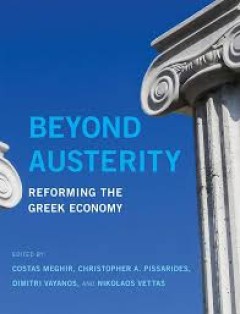
Beyond austerity :reforming the Greek economy
More than eight years after the global financial crisis began, the economy of Greece shows little sign of recovery, and its position in the eurozone seems tenuous. Between 2008 and 2014, incomes in Greece shrank by more than 25 percent, homes lost more than a third of their value, and the unemployment rate reached 27 percent. Most articles on Greece in the media focus on the effects of austerit…
- Edition
- -
- ISBN/ISSN
- 9780262339216
- Collation
- 1 online resource (x, 720 pages) :illustrations
- Series Title
- -
- Call Number
- -
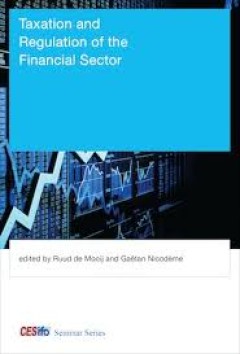
Taxation and Regulation of the Financial Sector
Analytical and empirical perspectives on the interplay of taxation and regulation in the financial sector.OCLC-licensed vendor bibliographic record.
- Edition
- -
- ISBN/ISSN
- 9780262321099
- Collation
- 1 online resource :illustrations.
- Series Title
- -
- Call Number
- -
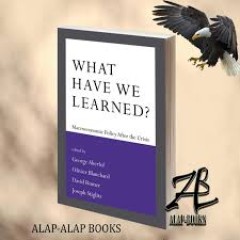
What Have We Learned?: Macroeconomic Policy after the Crisis
Since 2008, economic policymakers and researchers have occupied a brave new economic world. Previous consensuses have been upended, former assumptions have been cast into doubt, and new approaches have yet to stand the test of time. Policymakers have been forced to improvise and researchers to rethink basic theory. George Akerlof, Nobel Laureate and one of this volume's editors, compares the cr…
- Edition
- -
- ISBN/ISSN
- 9780262323444
- Collation
- 1 online resource (vii, 359 pages) :illustrations
- Series Title
- -
- Call Number
- -
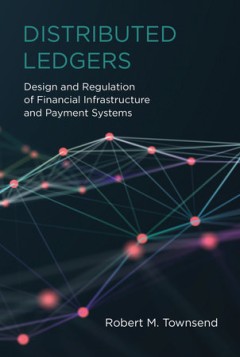
Distributed ledgers :design and regulation of financial infrastructure and pa…
"An exploration of the economic applications of distributed ledger technology"--OCLC-licensed vendor bibliographic record.
- Edition
- -
- ISBN/ISSN
- 0262361191
- Collation
- 1 online resource.
- Series Title
- -
- Call Number
- -
 Computer Science, Information & General Works
Computer Science, Information & General Works  Philosophy & Psychology
Philosophy & Psychology  Religion
Religion  Social Sciences
Social Sciences  Language
Language  Pure Science
Pure Science  Applied Sciences
Applied Sciences  Art & Recreation
Art & Recreation  Literature
Literature  History & Geography
History & Geography